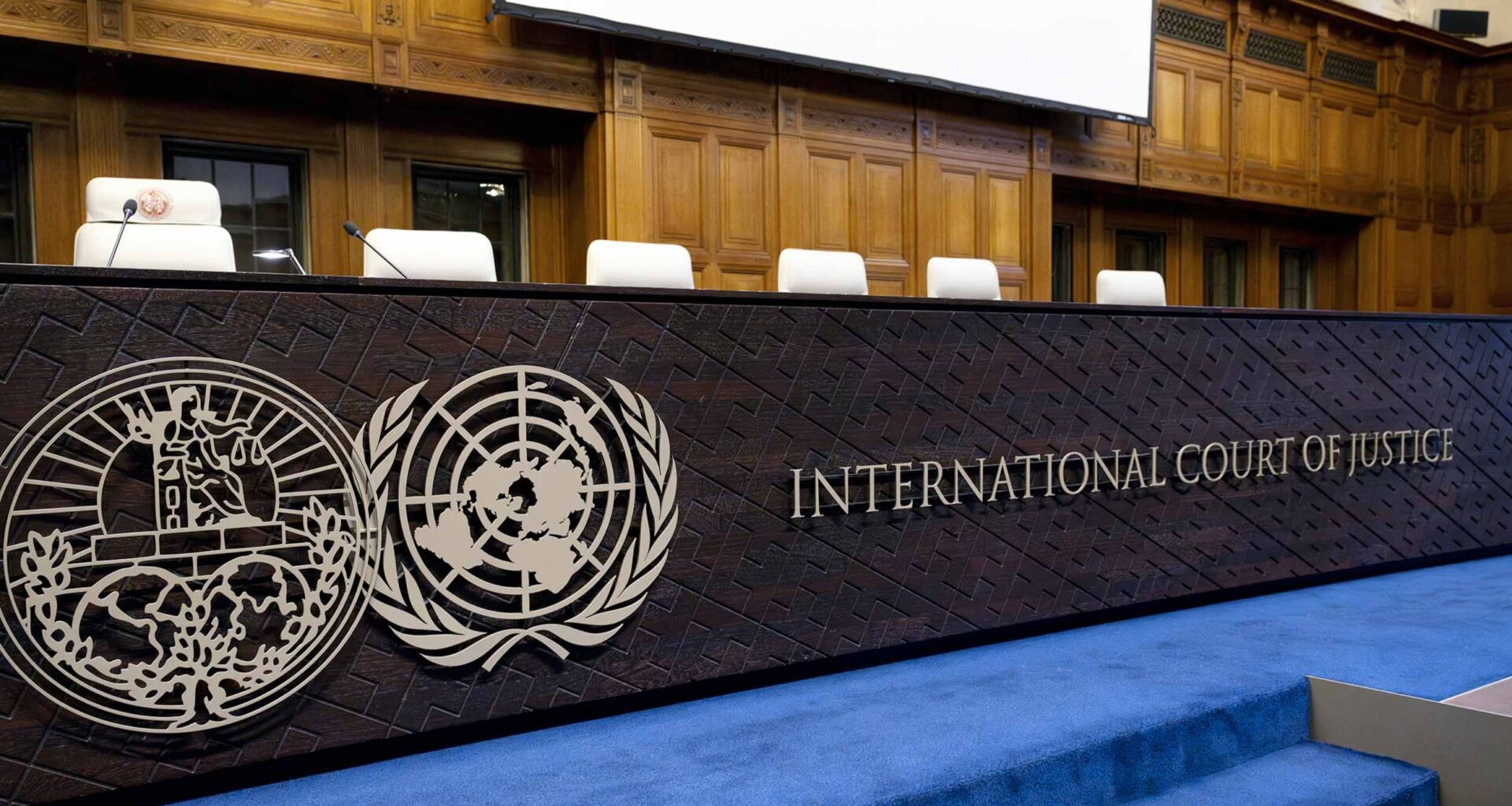At a glance
The International Court of Justice has delivered a legal opinion saying states have a duty under international law to enact measures that mitigate against climate change and adapt to its impacts
The opinion is likely to form the basis for new climate litigation cases, say legal experts
The ICJ calls on governments to regulate companies and reduce emissions in line with international agreements
Litigation against companies and governments is likely to increase after the International Court of Justice delivered a legal opinion on Wednesday afternoon making it clear states have a “legal duty” to mitigate against climate change under international law.
Sarah Mead, co-director of non-profit the Climate Litigation Network, says this includes regulating private companies.
Speaking from The Hague, in the Netherlands, where the ICJ is based, Mead says campaigners were celebrating the opinion, which “goes further” than any other international ruling on climate change.
Advisory opinions are nonbinding but carry legal and political weight and can be used by claimants to build litigation cases. Mead expects the opinion to “sow the seeds for new cases” in national courts.
Governments, state-owned companies and private businesses could all be impacted, she says.
The opinion was first requested in 2019 by youth group the Pacific Islands Students Fighting Climate Change, which argues that the human rights of current and future generations are at risk from greenhouse gas emissions. The case is the largest ever climate suit brought before the ICJ.
Companies operating in the fossil fuel industry are likely to be targets of initial litigation, as the ICJ specifically references fossil fuel production, consumption and subsidies as a cause of climate harm, says Mead.
Tom Cummins, senior counsel at UK law firm Ashurst, agrees the opinion represents a “landmark” moment and will have “knock-on consequences” for private sector companies.
States that fail to take appropriate action to combat climate change, including by not regulating companies, may be committing an internationally wrongful act, the court found.
The ICJ opinion makes it clear that states have climate change obligations in “customary international law”, says Cummins. This means states must reduce climate harm in all their practices and policies, not just those that relate to treaties such as the UN Framework Convention on Climate Change and the Paris Agreement.
Investor-state relations
Lorenzo Cotula, principal researcher at think-tank the International Institute for Environment and Development, says the opinion will also have implications for international treaties protecting foreign investments, including fossil fuels.
These treaties, such as the Energy Charter Treaty, “make it harder” for governments to fight climate change.
As the ICJ has stated that countries have a legal obligation to mitigate climate change, “the system governing investor-state relations should be reformed as part of the response to climate change”, with the ICJ as its basis, says Cotula.
Yesterday, UN secretary-general António Guterres also called for an end to government subsidies and investment treaties that prop up the fossil fuel industry. These instruments create “a clear market distortion”, making fossil fuels seem cheaper than renewables when the opposite is true, he said.
The ICJ also underlines the responsibility for polluting countries to “co-operate” on delivering climate solutions through technology and finance to poorer, climate-vulnerable countries.
Center for International Environmental Law senior attorney Joie Chowdhury, who advised on the case, says the ICJ opinion shows “those suffering the impacts of climate devastation have a right to remedy and reparation”.
A growing body of legal guidance
The opinion builds on two previous rulings in international courts that also outlined states’ obligations in relation to climate change. In May 2024, the International Tribunal for the Law of the Sea stated that greenhouse gases are pollutants and harm marine environments.
Earlier this month, the Inter-American Court of Human Rights, based in Costa Rica, issued an advisory opinion stating that people have a human right to a healthy climate and states have a duty to protect that right.
The IACHR opinion includes specific regulatory recommendations that states should impose on companies, including greenhouse gas emission reporting, emissions reductions, and environmental and human rights due diligence.
The IACHR also advised that companies with a larger responsibility for current and past emissions, including the fossil fuel, cement and agriculture industries, face “stricter duties” from states.
Georg Klingler, Greenpeace Switzerland co-ordinator for the KlimaSeniorinnen, the group of senior Swiss women who brought a climate case against the country’s government in 2024, says today’s opinion could also be used to support ongoing cases.
“The ICJ is clear that every country has a legal duty to protect future generations and the people facing the worst impacts of climate change,” he says.
The Swiss government has opposed the ruling of the European Court of Human Rights, which established a clear link between human rights and climate accountability in the KlimaSeniorinnen case. But “today’s decision shows that Switzerland is fighting a losing battle”, adds Klingler.
